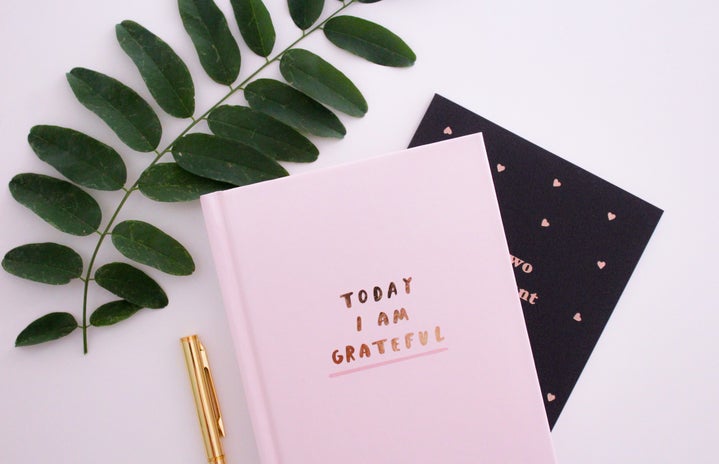With Thanksgiving and the holiday season fastly approaching, you may begin hearing a lot about gratitude. We’re all taught to say “please” and “thank you” as a polite response. We’re also told that we should be grateful for a multitude of things whether it’s the people in our lives or experiences we have. But how do we actually, consciously practice gratitude? Here’s some information about the psychology of gratitude (aka how it’s good for you) and how you can practice gratitude on a regular basis!
What is gratitude?
We hear the word gratitude a lot, but what is gratitude? Gratitude is the process of acknowledging and appreciating things in one’s life and feeling thankful for them. Usually, gratitude entails being thankful for something outside of yourself.
The psychology behind gratitude
According to this article published on the Harvard Medical School website, practicing gratitude can actually make you happier. By being thankful, you may feel more positive emotions, recount good experiences, improve your health, and build strong relationships. Psychologists Dr. Robert A. Emmons of the University of California, Davis and Dr. Michael E. McCullough of the University of Miami have done extensive research on gratitude. In one study, they found that those who wrote about gratitude were more optimistic and felt better about their lives compared to those who wrote about things that irritated them. These participants only wrote about gratitude in a few sentences each week which should give you some insight into how simple and quick practicing gratitude can be. It’s the little things that count!
How can you practice gratitude?
As college students, it can feel overwhelming to add another thing to the to-do list, but practicing gratitude should come from a place within yourself and should not be guided by ulterior motives. Gratitude is a quality you can foster over time, so don’t feel discouraged if you don’t know where to start.
One way to practice gratitude is by using a gratitude journal. These journals have prompts, so you don’t have to stress about coming up with prompts all on your own. My personal favorite gratitude journals are the Papier Gratitude Journals because they have such cute designs. If you’re really pressed for time, there’s The 5-Minute Journal which literally takes 5 minutes or less.
Another way you can practice gratitude is by writing thank you notes. Whether it’s to your friends and family members or to Frank workers, a thank you note is guaranteed to make their day. If thank you notes aren’t your thing, you can still practice gratitude by simply calling your friends and family and telling them how much you appreciate them.
No matter how you practice gratitude, it can make a significant difference in your life. Practicing gratitude is just one small step towards living a happier life, so next time you have a free minute, try jotting down some things you’re grateful for!


